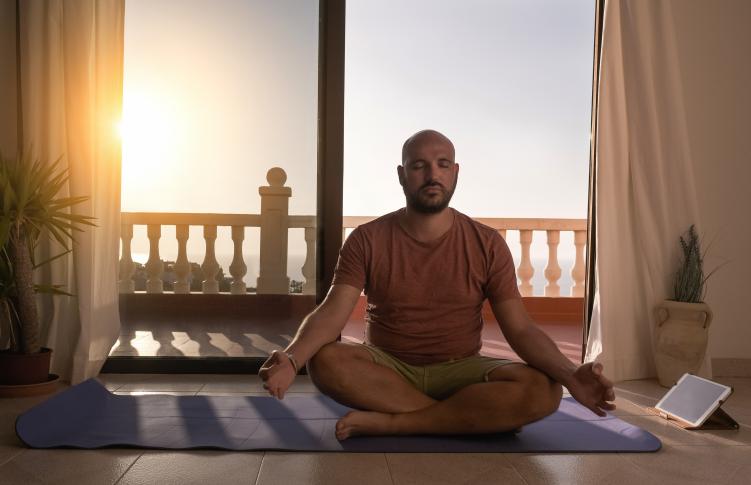Recovering from alcohol addiction is a brave and challenging journey. While the focus is to mitigate drinking, you must also focus on building a new, healthier way of living. Mindfulness, the practice of staying present and aware, can be a powerful tool to support this process. By focusing on the moment, you can better manage cravings, reduce stress, and find peace within yourself.
Below are ten mindful habits that can help you stay strong in your recovery.
1. Start Your Day with Meditation
Let’s begin with a habit that sets a calm tone for your day: meditation. Sitting quietly for 10-15 minutes and focusing on your breath can help you feel grounded. Many mobile apps like Headspace or Calm offer guided sessions if you’re new to this. Meditation trains your mind to notice thoughts without acting on them, which is especially helpful when cravings pop up. Over time, this practice can lower stress and make it easier to manage alcohol dependence.
2. Keep a Gratitude Journal
Writing down three things you’re thankful for each day can shift your mindset. Maybe it’s a supportive friend, a sunny morning, or a small personal win. This habit helps you notice the good in your life, even on tough days. Gratitude journaling can reduce negative emotions that might trigger a relapse. Try doing this at night to reflect on your day and end it on a hopeful note.
3. Practice Mindful Breathing
When a craving hits, it can feel overwhelming. That’s where mindful breathing comes in. Try the 4-7-8 technique: breathe in for 4 seconds, hold for 7, and exhale for 8. This simple exercise, done for 1-2 minutes, slows your heart rate and calms your mind. It’s like hitting a pause button, giving you space to choose how to respond. Keep this in your back pocket for stressful moments.
4. Try a Body Scan
A body scan is a short meditation where you mentally check in with each part of your body, from toes to head. Spend 5-10 minutes noticing sensations like tension or warmth without judging them. This helps you spot physical signs of stress or cravings early. By understanding your body’s signals, you can take action—like breathing or stretching—before things escalate.
5. Build Sober Connections
Recovery is easier with people who understand your journey. Joining a support group therapy like Alcoholics Anonymous (AA) or SMART Recovery lets you share and listen mindfully. You can also explore professional support from centers like Jackson House Rehab, which offers specialized treatment programs to guide you through recovery.
Focus fully on what others say in these settings, and be honest when it’s your turn. These connections remind you you’re not alone and provide accountability. Even one meeting a week can make a big difference.
6. Embrace Mindful Movement
Activities like yoga, tai chi, or walking meditation combine movement with awareness. Try a 20-minute yoga session or a slow walk where you notice each step. These practices help release tension and foster a deeper connection to your body. Plus, they’re a healthy way to fill time you might have spent drinking. Aim for 2-3 sessions a week to boost your mood.
7. Observe Your Triggers
Mindfulness teaches you to notice thoughts without getting caught up in them. When you’re craving alcohol, pause, think, and acknowledge that it is a craving. Label it, then let it pass like a cloud in the sky. This habit helps you see triggers—maybe stress or certain places—for what they are. By staying curious instead of reactive, you gain control over your choices.
8. Create a Healthy Routine
A consistent daily schedule gives your recovery structure. Plan times for healthy meals, sleep, exercise, and mindfulness practices. Eating balanced meals and getting 7-8 hours of sleep stabilizes your mood, making cravings less intense. Stick to your routine as much as possible, but be kind to yourself if you slip up.
9. Practice Self-Compassion
Recovery can bring up guilt or shame, but beating yourself up only makes things harder. Try a self-compassion meditation or repeat phrases like, ‘I’m doing my best, and that’s enough.’ Being kind to yourself builds resilience. Apps like Insight Timer have guided meditations to help you get started.
10. Use Mindful Distraction
When cravings or negative thoughts linger, distract yourself with a mindful activity. Draw, read a book, or do a puzzle, and focus fully on it. For example, notice the colors as you draw or the feel of the puzzle pieces. This pulls your attention away from the craving and keeps you present. Keep a go-to activity ready for when you need it.
Bringing It All Together
These ten mindful habits offer simple ways to support your recovery from alcohol use disorder. They help you stay present, manage triggers, and build a life you’re proud of. Start with one or two habits that feel doable, and add more as you grow stronger. Recovery is a journey, and every mindful step counts. If you need extra support, consider talking to a counselor or joining a local recovery group. You’ve got this, and you’re not alone.


Recovering from alcohol addiction is a brave and challenging journey. While the focus is to mitigate drinking, you must also focus on building a new, healthier way of living. Mindfulness, the practice of staying present and aware, can be a powerful tool to support this process. By focusing on the moment, you can better manage cravings, reduce stress, and find peace within yourself.
Below are ten mindful habits that can help you stay strong in your recovery.
1. Start Your Day with Meditation
Let’s begin with a habit that sets a calm tone for your day: meditation. Sitting quietly for 10-15 minutes and focusing on your breath can help you feel grounded. Many mobile apps like Headspace or Calm offer guided sessions if you’re new to this. Meditation trains your mind to notice thoughts without acting on them, which is especially helpful when cravings pop up. Over time, this practice can lower stress and make it easier to manage alcohol dependence.
2. Keep a Gratitude Journal
Writing down three things you’re thankful for each day can shift your mindset. Maybe it’s a supportive friend, a sunny morning, or a small personal win. This habit helps you notice the good in your life, even on tough days. Gratitude journaling can reduce negative emotions that might trigger a relapse. Try doing this at night to reflect on your day and end it on a hopeful note.
3. Practice Mindful Breathing
When a craving hits, it can feel overwhelming. That’s where mindful breathing comes in. Try the 4-7-8 technique: breathe in for 4 seconds, hold for 7, and exhale for 8. This simple exercise, done for 1-2 minutes, slows your heart rate and calms your mind. It’s like hitting a pause button, giving you space to choose how to respond. Keep this in your back pocket for stressful moments.
4. Try a Body Scan
A body scan is a short meditation where you mentally check in with each part of your body, from toes to head. Spend 5-10 minutes noticing sensations like tension or warmth without judging them. This helps you spot physical signs of stress or cravings early. By understanding your body’s signals, you can take action—like breathing or stretching—before things escalate.
5. Build Sober Connections
Recovery is easier with people who understand your journey. Joining a support group therapy like Alcoholics Anonymous (AA) or SMART Recovery lets you share and listen mindfully. You can also explore professional support from centers like Jackson House Rehab, which offers specialized treatment programs to guide you through recovery.
Focus fully on what others say in these settings, and be honest when it’s your turn. These connections remind you you’re not alone and provide accountability. Even one meeting a week can make a big difference.
6. Embrace Mindful Movement
Activities like yoga, tai chi, or walking meditation combine movement with awareness. Try a 20-minute yoga session or a slow walk where you notice each step. These practices help release tension and foster a deeper connection to your body. Plus, they’re a healthy way to fill time you might have spent drinking. Aim for 2-3 sessions a week to boost your mood.
7. Observe Your Triggers
Mindfulness teaches you to notice thoughts without getting caught up in them. When you’re craving alcohol, pause, think, and acknowledge that it is a craving. Label it, then let it pass like a cloud in the sky. This habit helps you see triggers—maybe stress or certain places—for what they are. By staying curious instead of reactive, you gain control over your choices.
8. Create a Healthy Routine
A consistent daily schedule gives your recovery structure. Plan times for healthy meals, sleep, exercise, and mindfulness practices. Eating balanced meals and getting 7-8 hours of sleep stabilizes your mood, making cravings less intense. Stick to your routine as much as possible, but be kind to yourself if you slip up.
9. Practice Self-Compassion
Recovery can bring up guilt or shame, but beating yourself up only makes things harder. Try a self-compassion meditation or repeat phrases like, ‘I’m doing my best, and that’s enough.’ Being kind to yourself builds resilience. Apps like Insight Timer have guided meditations to help you get started.
10. Use Mindful Distraction
When cravings or negative thoughts linger, distract yourself with a mindful activity. Draw, read a book, or do a puzzle, and focus fully on it. For example, notice the colors as you draw or the feel of the puzzle pieces. This pulls your attention away from the craving and keeps you present. Keep a go-to activity ready for when you need it.
Bringing It All Together
These ten mindful habits offer simple ways to support your recovery from alcohol use disorder. They help you stay present, manage triggers, and build a life you’re proud of. Start with one or two habits that feel doable, and add more as you grow stronger. Recovery is a journey, and every mindful step counts. If you need extra support, consider talking to a counselor or joining a local recovery group. You’ve got this, and you’re not alone.
Related Content: